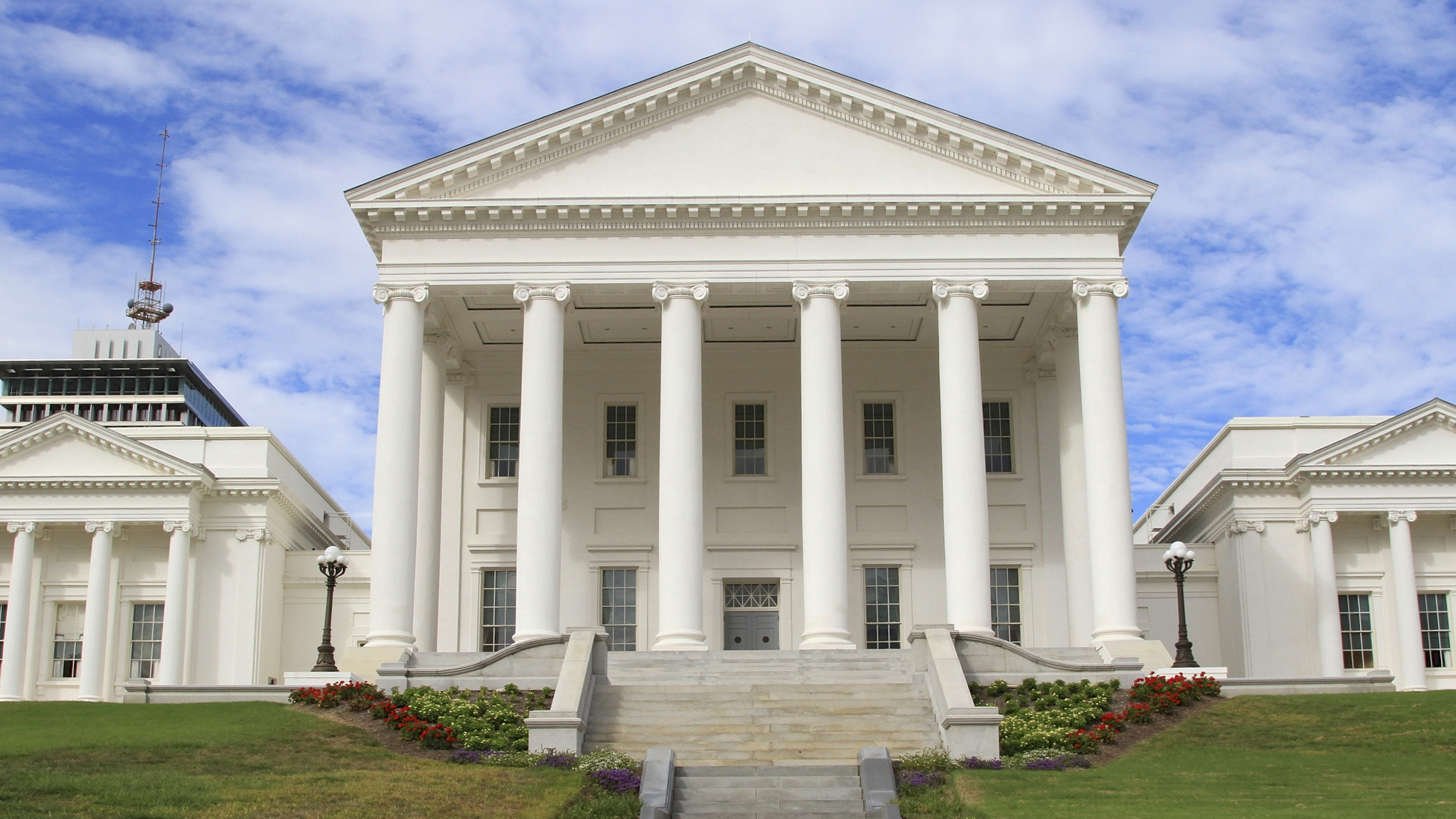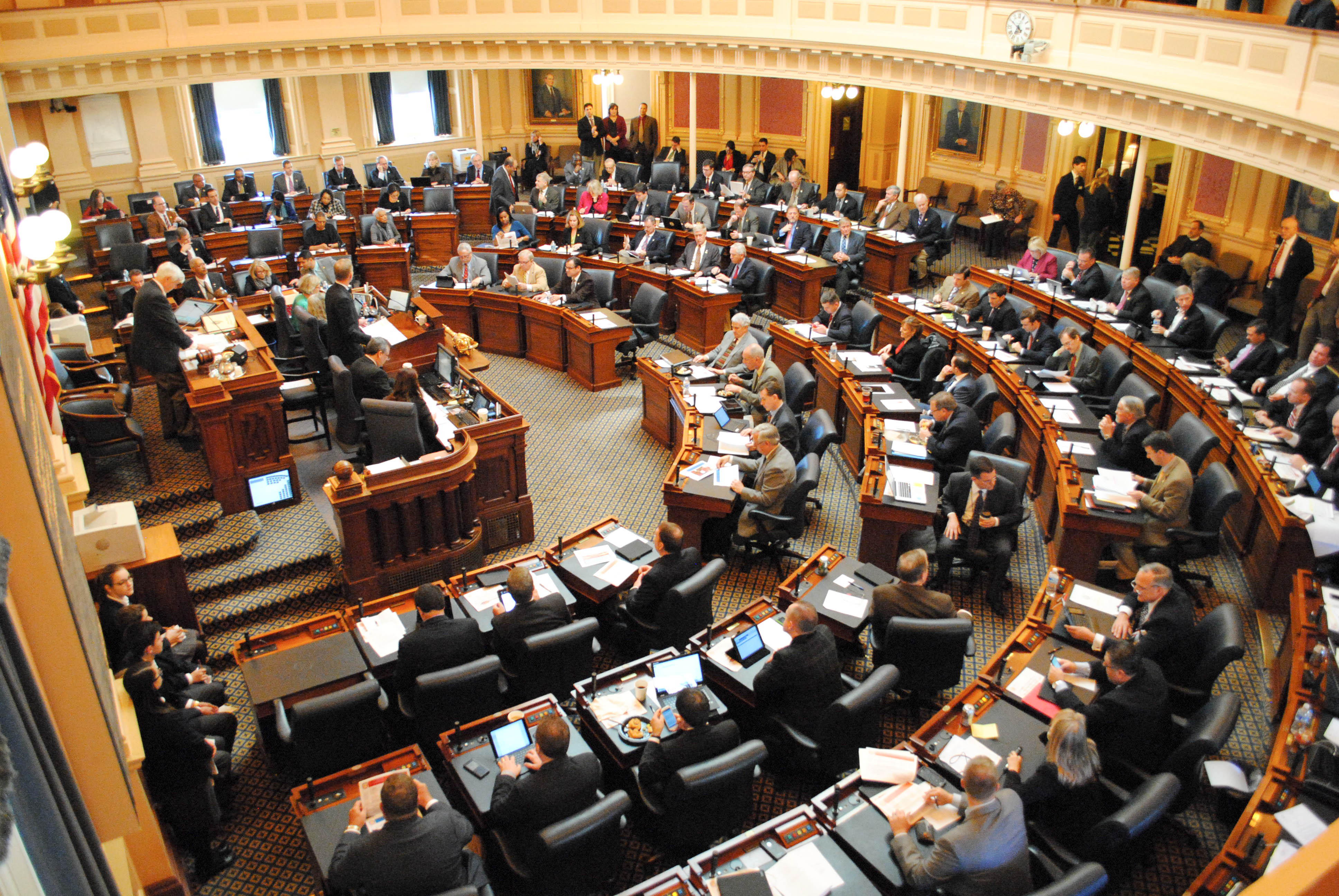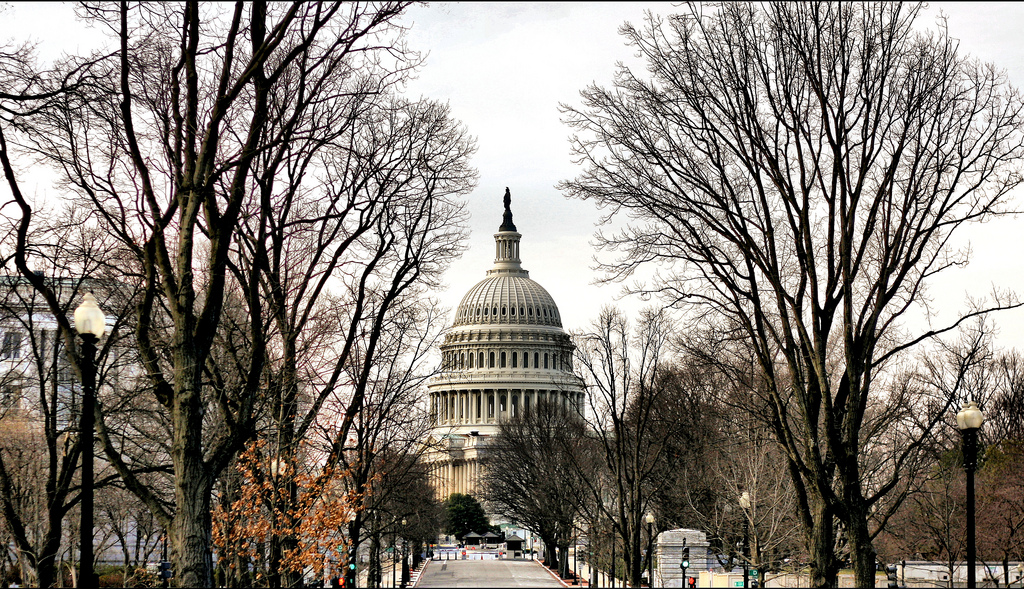“If Democrats take the House Majority they will push to legalize abortions right up until the birth of the child,” the Virginia GOP said as the 2019 statewide election season begins.

Virginia's Public Square
Virginia's Public Square

“If Democrats take the House Majority they will push to legalize abortions right up until the birth of the child,” the Virginia GOP said as the 2019 statewide election season begins.

Following the passing of former President George H. W. Bush just five months after his 94th birthday and seven months after the death of his wife of over seven decades, former First Lady Barbara Bush, Republican Congresswoman Barbara Comstock (VA-10) paid her respects to the “humble, decent, and courageous” leader. The 41st President will be remembered by everything from his time as captain of the baseball team at Yale University many decades ago to his time in the Oval Office that shaped the world for generations to come.
Congresswoman Comstock said in a press release from her office that she and her team are “saddened to hear of the passing of George H.W. Bush and our prayers are with his family and many friends.
“President George H. W. Bush, the last president of the greatest generation, was a man of great character and deep patriotism. His life and legacy of service was unmatched, she said. “From serving as the youngest WWII pilot, a Member of Congress, Ambassador to the U.N., Ambassador to China, CIA Director, Chairman of the Republican National Committee, Vice President, and President, he always served with distinction.”
“History will remember this humble, decent, and courageous man well,” Congresswoman Comstock added.
Today, Wednesday, December 5, 2018, the former commander-in-chief is “lying in state” and being honored at the rotunda of the Capitol Building in Washington, D.C., as the city and the nation pay their respects to Bush. Former presidents Barack Obama, George W. Bush, Bill Clinton, and their wives, former first ladies Michelle, Laura, and Hillary, joined President Donald Trump and his wife First Lady Melania Trump at the funeral service as D.C. remembers a great American statesman.
“To us,” W. Bush said while eulogizing his father at the Washington National Cathedral, “his was the brightest of a thousand points of light.”

“We can’t do anything about the emotional cost, but we can do something about the financial cost,” Congressman Morgan Griffith (VA-9) said following his introduction of legislation – based on a true and tragic story from one of his constituents – to allow parents of involuntarily stillborn babies to receive the federal Child Tax Credit.

Coming off the 2018 midterm elections, with Democrats taking back the U.S. House of Representatives and Virginia’s congressional delegation from the GOP, the recruitment and training strong candidates on part of the liberal party is likely to be well-funded in such a consequential election.

For the upcoming session in January, Delegate Dave LaRock (R-Loudoun) said his biggest legislative priorities are conforming the Commonwealth’s tax code to federal guidelines, helping families secure state funds for their children to attend private K-12 schools in emergency situations, and to expand broadband connections across rural Virginia.

Data from the Census Bureau has shown that there is evidence for President Donald Trump‘s common concern that the influx of undocumented immigrants is costing U.S. taxpayers. In a new study, the Center for Immigration Studies (CIS) found that a majority of “non-citizens,” including those with legal green cards that have not been naturalized, are relying on welfare programs to the tune of 63 percent to be exact, with the number to grow to over 70 percent in as little as a decade.
“The Trump administration has proposed new ‘public charge’ rules making it harder for prospective immigrants to qualify for lawful permanent residence – green cards – if they use or are likely to use U.S. welfare programs,” said CIS, according to the Washington Examiner.
“Concern over immigrant welfare use is justified, as households headed by non-citizens use means-tested welfare at high rates. Non-citizens in the data include illegal immigrants, long-term temporary visitors like guest workers, and permanent residents who have not naturalized. While barriers to welfare use exist for these groups, it has not prevented them from making extensive use of the welfare system, often receiving benefits on behalf of U.S.-born children,” added the immigration think tank.
The report details that there are 4,684,784 million non-citizen households receiving welfare, 4,370,385 of which have at least one worker in the house. Only about half of those people are in the U.S. legally, the study found.
Results of the study show that 63 percent of households headed by a non-citizen reported that they used at least one welfare program, compared to 35 percent of native-headed households. If cash payments from the earned income tax credit (ETIC) program are left out, welfare usage decreases five percentage point each, with 58 percent for non-citizen households and 30 percent for native-born households.
Moreover, 45 percent of non-citizen households use food assistance programs, compared with 21 percent among native-headed households. With Medicaid, it is 50 percent for non-citizens and 23 percent for native households).
Nevertheless, while most “new” legal immigrants, whom are green card holders, are prohibited from using most U.S. welfare programs, the study dictates, “these provisions have only a modest impact on non-citizen household use rates because: 1) most legal immigrants have been in the country long enough to qualify; 2) the bar does not apply to all programs, nor does it always apply to non-citizen children; 3) some states provide welfare to new immigrants on their own; and, most importantly, 4) non-citizens (including illegal immigrants) can receive benefits on behalf of their U.S.-born children who are awarded U.S. citizenship and full welfare eligibility at birth.”
In late November, the City of Baltimore, Maryland, filed a first-in-the-nation lawsuit challenging the President’s efforts to curtail legal immigration by penalizing people who use public benefits under the Trump Administration’s expanded definition of “public charges.” As stated by The Hill, the measure from the White House would bar immigrants who “unduly rely on public assistance” including vital programs such as the Supplemental Nutrition Assistance Program (SNAP) from a path to citizenship or other legal status.
U.S. Citizenship and Immigration Services (USCIS) says the rule would not impact:
“[G]roups of aliens that Congress specifically exempted from the public charge ground of inadmissibility, such as refugees, asylees, Afghans and Iraqis with special immigrant visas, nonimmigrant trafficking and crime victims, individuals applying under the Violence Against Women Act, and special immigrant juveniles. Additionally, the rule excludes consideration of benefits received by U.S. citizen children of aliens who will acquire citizenship under either section 320 or 322 of the INA, and by alien service members of the U.S. Armed Forces.”
The Department of Homeland Security (DHS) said last week that the proposed public charge rule is meant to “implement the law” and “promote immigrant self-sufficiency….requir[ing] that immigrants be able to support themselves financially and not be dependent on a public benefit, like welfare.” DHS is also looking at a proposal to deny green cards to immigrants who use public assistance.

Patients in the City of Martinsville are prescribed more opioids than anywhere else in the country. In fact, doctors and clinicians in the area, which is home to just under 14,000 residents, prescribed almost 4,090 morphine milligram equivalents per person, with the national average being 640 milligram equivalents per person.

With the lucky first draw among freshman legislators picking offices in downtown Washington, D.C., Virginia’s Congressman-elect Ben Cline chose room 1009 in the Longworth House Office Building, adding that his pick would house “lots of room for visiting constituents.”

Donald Palmer, Trump’s nominee for the Election Assistance Committee (EAC), told the Senate committee – on which Senator Mark Warner (D-VA) sits but was not in attendance – that he is committed to expelling voter fraud. However, that has not stopped Democrats from criticizing the President’s appointment.

The proposal from the Department of Homeland Security (DHS) would decrease deployment numbers from 5,600 to 4,000, with the extension of the remaining personnel expiring in January.